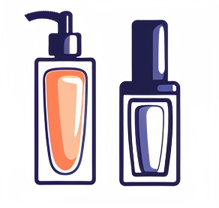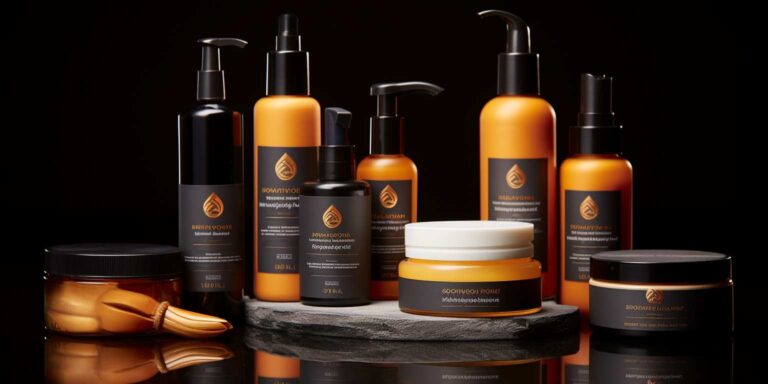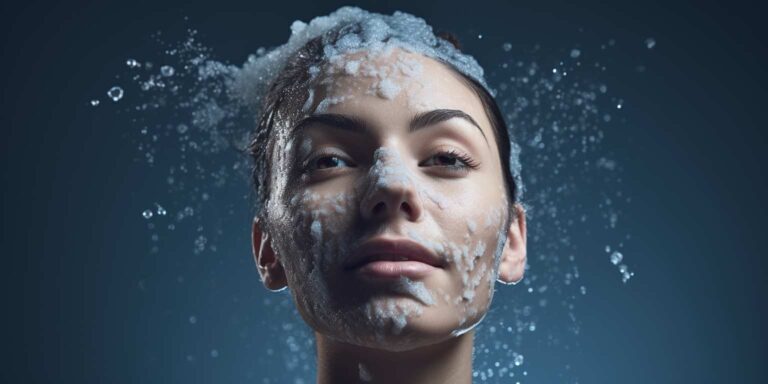Unveiling the best dht blocker shampoo for hair loss prevention
But fear not, for the market is teeming with a plethora of DHT blocker shampoos promising to thwart hair loss and promote healthy hair growth. However, not all DHT blocker shampoos are created equal. To help you navigate through the maze of options, we’ve curated a list of the best DHT blocker shampoos renowned for their efficacy.
| Product | Key Ingredients | Benefits |
|---|---|---|
| 1. Nizoral Anti-Dandruff Shampoo | Ketoconazole | Targets DHT on the scalp, reduces dandruff, and promotes hair thickness. |
| 2. Hair Restoration Laboratories DHT Blocking Hair Loss Shampoo | Saw Palmetto Extract, Green Tea Extract, Pumpkin Seed Oil, Caffeine | Effectively blocks DHT, stimulates hair follicles, and strengthens hair strands. |
| 3. Lipogaine Hair Stimulating Shampoo | Ketoconazole, Saw Palmetto Extract, Biotin | Combats DHT, nourishes the scalp, and promotes thicker, healthier hair. |
These DHT blocker shampoos work by either inhibiting the production of DHT or blocking its effects on the hair follicles. Ketoconazole, a common ingredient found in many of these shampoos, has been clinically proven to effectively reduce DHT levels on the scalp.
Moreover, botanical extracts such as saw palmetto, pumpkin seed oil, and green tea extract possess DHT-blocking properties, making them valuable additions to DHT blocker shampoos. These natural ingredients not only combat hair loss but also nourish the scalp and promote optimal hair health.
When incorporating a DHT blocker shampoo into your hair care routine, consistency is key. While these shampoos can yield noticeable results, they require regular use over an extended period to maximize their effectiveness. Additionally, complementing your shampoo with a DHT-blocking conditioner and topical treatments can further enhance results.
Understanding dht and hair loss
Understanding dht and hair loss involves delving into the intricate mechanisms of the human body’s hormonal balance and its effects on hair follicles. DHT, or dihydrotestosterone, is a potent male sex hormone derived from testosterone through the action of the enzyme 5-alpha reductase. While DHT plays a crucial role in the development of male characteristics during puberty, it also poses a significant threat to hair follicles, particularly in individuals genetically predisposed to androgenetic alopecia, commonly known as male pattern baldness.
At the heart of the matter lies the interaction between DHT and hair follicles. Hair follicles contain receptors for DHT, and when DHT binds to these receptors, it can shrink the hair follicles, making them progressively smaller over time. This process, known as miniaturization, leads to weaker, thinner hair growth and, eventually, the cessation of hair production altogether in affected follicles.
The genetic component of androgenetic alopecia is crucial. Those with a family history of hair loss are more likely to inherit genes that make their hair follicles more susceptible to the damaging effects of DHT. However, it’s not just genetics at play; other factors such as age, hormonal fluctuations, and overall health can also influence the severity and progression of hair loss.
Understanding the role of 5-alpha reductase is key to comprehending how DHT levels can be managed. This enzyme is responsible for converting testosterone into DHT in various tissues throughout the body, including the scalp. Certain medications, such as finasteride, work by inhibiting the activity of 5-alpha reductase, thereby reducing the production of DHT and potentially slowing down the progression of hair loss.
However, it’s essential to approach the treatment of hair loss with caution and awareness of potential side effects. While medications like finasteride can be effective for some individuals, they may not work for everyone, and they can carry risks such as sexual dysfunction and other adverse reactions.
| Key Points to Remember: |
|---|
| DHT: A potent male sex hormone derived from testosterone, implicated in the miniaturization of hair follicles. |
| Androgenetic Alopecia: Also known as male pattern baldness, it is characterized by the progressive thinning and loss of hair. |
| Genetics: Family history of hair loss can increase susceptibility to androgenetic alopecia. |
| 5-alpha Reductase: An enzyme responsible for converting testosterone into DHT; inhibition of this enzyme can help manage DHT levels. |
Key ingredients in dht blocker shampoos
In the realm of hair care, DHT blocker shampoos have gained substantial attention for their purported ability to combat hair loss and promote healthier hair growth. These specialized shampoos are formulated with key ingredients aimed at reducing the levels of dihydrotestosterone (DHT), a hormone known to contribute to hair thinning and baldness.
So, what are the key ingredients that make these shampoos effective in blocking DHT and fostering optimal hair health? Let’s delve into some of the essential components:
| Key Ingredient | Function |
|---|---|
| Saw Palmetto Extract | Saw palmetto is a plant extract that inhibits the activity of 5-alpha-reductase, an enzyme responsible for converting testosterone into DHT. By blocking this conversion, saw palmetto helps to lower DHT levels in the scalp, thereby reducing hair loss and promoting hair thickness. |
| Biotin | Biotin, also known as vitamin B7, is crucial for maintaining healthy hair, skin, and nails. It supports the production of keratin, a protein that forms the structure of hair strands. By fortifying the hair follicles with biotin, DHT blocker shampoos can enhance hair strength and resilience. |
| Caffeine | Caffeine is not just a morning pick-me-up; it also has stimulating properties that can promote hair growth. When applied topically to the scalp, caffeine can help to increase blood circulation, which in turn delivers more nutrients and oxygen to the hair follicles. Additionally, caffeine has been shown to counteract the effects of DHT on hair follicles, making it an effective ingredient in DHT blocker shampoos. |
| Ketoconazole | Ketoconazole is an antifungal agent commonly used to treat dandruff and other scalp conditions. However, research suggests that ketoconazole may also have anti-androgenic properties, meaning it can inhibit the effects of androgens like DHT on the hair follicles. By incorporating ketoconazole into DHT blocker shampoos, manufacturers aim to address both fungal issues and hair loss simultaneously. |
While these are some of the primary ingredients found in DHT blocker shampoos, it’s essential to note that formulations may vary among different brands. Some products may also contain additional nutrients and botanical extracts known for their hair-strengthening and scalp-nourishing properties.
How to choose the best dht blocker shampoo
When selecting the best DHT blocker shampoo, it’s crucial to consider several factors to ensure you’re making an informed decision. DHT, or dihydrotestosterone, is a hormone linked to hair loss, and a specialized shampoo can help mitigate its effects.
First and foremost, check the product’s active ingredients. Look for shampoos containing ketoconazole, as it has demonstrated effectiveness in inhibiting DHT production on the scalp. Additionally, saw palmetto is a natural extract known for its DHT-blocking properties.
Another critical factor is the shampoo’s hair type compatibility. Not all products work universally for all hair types. If you have oily hair, opt for a shampoo that balances oil production without over-drying. For those with dry hair, look for a moisturizing formula to prevent further dehydration.
Sulfate-free shampoos are preferable, especially for individuals with sensitive skin or those prone to allergies. Sulfates can strip the hair and scalp of natural oils, potentially causing irritation. Ensure the chosen product is labeled as sulfate-free for a gentle cleansing experience.
Consider the brand reputation and customer reviews. Reliable brands often invest in research and quality ingredients. Check customer feedback to gauge the effectiveness of the shampoo in real-world scenarios. This can provide valuable insights into its ability to block DHT and promote hair health.
Understanding the mode of action of the shampoo is essential. Some products primarily focus on cleansing and nourishing the scalp, while others incorporate advanced technologies to penetrate hair follicles and block DHT at the root. Choose a shampoo that aligns with your preferences and expectations.
It’s wise to check for any potential side effects associated with the chosen DHT blocker shampoo. While most products are generally safe, individual reactions can vary. Look for indications of allergic reactions or scalp irritation in customer reviews, and perform a patch test before widespread use.
To enhance your decision-making process, here’s a quick comparison table summarizing key features of popular DHT blocker shampoos:
| Product | Active Ingredients | Hair Type Compatibility | Sulfate-Free | Mode of Action | Customer Rating |
| Shampoo A | Ketoconazole, Saw Palmetto | All Hair Types | Yes | Follicle Penetration | 4.5/5 |
| Shampoo B | Saw Palmetto, Biotin | Oily Hair | Yes | Scalp Nourishment | 4.2/5 |
| Shampoo C | Ketoconazole, Rosemary Extract | Dry Hair | Yes | DHT Inhibition | 4.7/5 |
Real results: before and after using dht blocker shampoo
Using a DHT blocker shampoo can yield remarkable results, transforming the condition of your hair from lackluster to luscious. The difference is not just anecdotal; it’s visible, tangible, and often astounding.
Let’s delve into the real results: the before and after of using a DHT blocker shampoo. Picture this: before starting the treatment, your scalp may have been a battleground, with strands of hair falling like casualties of war. But after consistent use of a quality DHT blocker shampoo, that battlefield transforms into a fertile ground where follicles thrive and hair regrowth reigns supreme.
In the before scenario, you might have been struggling with thinning hair, receding hairline, or noticeable bald patches. It’s not just about aesthetics; it’s about confidence, self-image, and feeling comfortable in your skin. Many individuals experience a sense of frustration and even despair when faced with hair loss.
Now, fast forward to the after. This is where the magic happens. With regular use of a DHT blocker shampoo, you might notice significant improvements in hair density, thickness, and overall scalp health. The results can be dramatic.
| Before | After |
|---|---|
| Thinning hair | Increased hair density |
| Receding hairline | Improved hair thickness |
| Bald patches | Healthy scalp environment |
But it’s not just about what you can see with the naked eye. The transformation goes deeper. By blocking DHT, a hormone linked to hair loss, these shampoos create an environment conducive to hair growth. They nourish the scalp, strengthen the follicles, and stimulate circulation, all essential factors for healthy hair.
Moreover, the ingredients in DHT blocker shampoos often include natural extracts like saw palmetto, biotin, and ketoconazole, each playing a vital role in combating hair loss and promoting regrowth. These ingredients work synergistically to address the root cause of hair loss, ensuring long-term effectiveness.
Integrating dht blocker shampoo into your hair care routine
Integrating dht blocker shampoo into your hair care routine can be a game-changer for those struggling with hair loss. DHT, or dihydrotestosterone, is a hormone linked to hair thinning and pattern baldness, especially in men. By incorporating a DHT blocker shampoo, you can effectively combat the effects of this hormone and promote healthier, thicker hair.
First and foremost, it’s essential to understand how DHT blocker shampoos work. These specialized shampoos contain ingredients that target DHT directly, preventing it from binding to hair follicles and causing damage. Ingredients such as ketoconazole, saw palmetto, and biotin are commonly found in DHT blocker shampoos due to their effectiveness in inhibiting DHT production.
When integrating a DHT blocker shampoo into your routine, consistency is key. Unlike prescription medications or surgical procedures, DHT blocker shampoos offer a non-invasive and easy-to-implement solution for hair loss prevention. Incorporate the shampoo into your regular washing routine, ensuring that you massage it into your scalp thoroughly to allow the active ingredients to penetrate the hair follicles.
It’s important to note that DHT blocker shampoos work best when used in conjunction with other hair care practices. A balanced diet rich in vitamins and minerals essential for hair health, such as vitamin E, iron, and omega-3 fatty acids, can complement the effects of the shampoo. Additionally, minimizing stress levels and avoiding harsh styling products can help maintain the overall health of your hair.
When selecting a DHT blocker shampoo, consider factors such as your hair type, any existing scalp conditions, and potential sensitivities to certain ingredients. Reading reviews and consulting with dermatologists or trichologists can also provide valuable insight into which DHT blocker shampoo may be most suitable for you.
It’s essential to manage expectations when incorporating a DHT blocker shampoo into your routine. While these shampoos can effectively slow down hair loss and promote regrowth in some individuals, results may vary. Consistent use over time is often necessary to see noticeable improvements in hair thickness and density.
Frequently asked questions about dht blocker shampoos
Dihydrotestosterone (DHT) blocker shampoos have gained popularity as a potential solution for hair loss and thinning. If you’re considering incorporating a DHT blocker shampoo into your hair care routine, here are some frequently asked questions to guide you:
Q: What is DHT?
DHT, or dihydrotestosterone, is a hormone that plays a role in hair loss. It is derived from testosterone and can bind to hair follicles, leading to miniaturization and eventually hair loss. DHT blocker shampoos aim to prevent or reduce the impact of this hormone on the hair.
Q: How do DHT blocker shampoos work?
DHT blocker shampoos typically contain ingredients that inhibit the production or activity of DHT. Common ingredients include ketoconazole, saw palmetto, and pyrithione zinc. These components work together to mitigate the effects of DHT on hair follicles, promoting a healthier scalp environment.
Q: Are DHT blocker shampoos effective?
The effectiveness of DHT blocker shampoos varies from person to person. While some individuals may experience positive results, others may not see significant changes. It’s essential to manage expectations and consult with a healthcare professional if hair loss is a persistent concern.
Q: Can anyone use DHT blocker shampoos?
Most DHT blocker shampoos are suitable for both men and women. However, individuals with specific allergies or scalp conditions should carefully check the ingredients before use. If you have concerns about possible side effects, consulting with a dermatologist is advisable.
Q: How often should I use a DHT blocker shampoo?
The frequency of use depends on the product and individual needs. Some shampoos are designed for daily use, while others recommend a few times a week. Following the instructions on the product packaging is crucial to achieving the best results without causing any potential side effects.
Q: Are there any side effects?
While DHT blocker shampoos are generally considered safe, some individuals may experience mild side effects such as scalp irritation or dryness. Conducting a patch test before regular use and discontinuing if adverse reactions occur is recommended.
Q: Can DHT blocker shampoos regrow hair?
DHT blocker shampoos are primarily designed to prevent further hair loss and promote a healthier scalp. While some users may notice improvements in hair thickness and texture, expecting complete hair regrowth may be unrealistic. Combining these shampoos with other hair care practices may enhance overall results.
Q: Are there lifestyle changes to support DHT blocker shampoo effectiveness?
Yes, adopting a healthy lifestyle can complement the effects of DHT blocker shampoos. This includes maintaining a balanced diet, staying hydrated, managing stress, and avoiding excessive heat or chemical treatments that can damage the hair and scalp.
Q: Can DHT blocker shampoos be used with other hair loss treatments?







